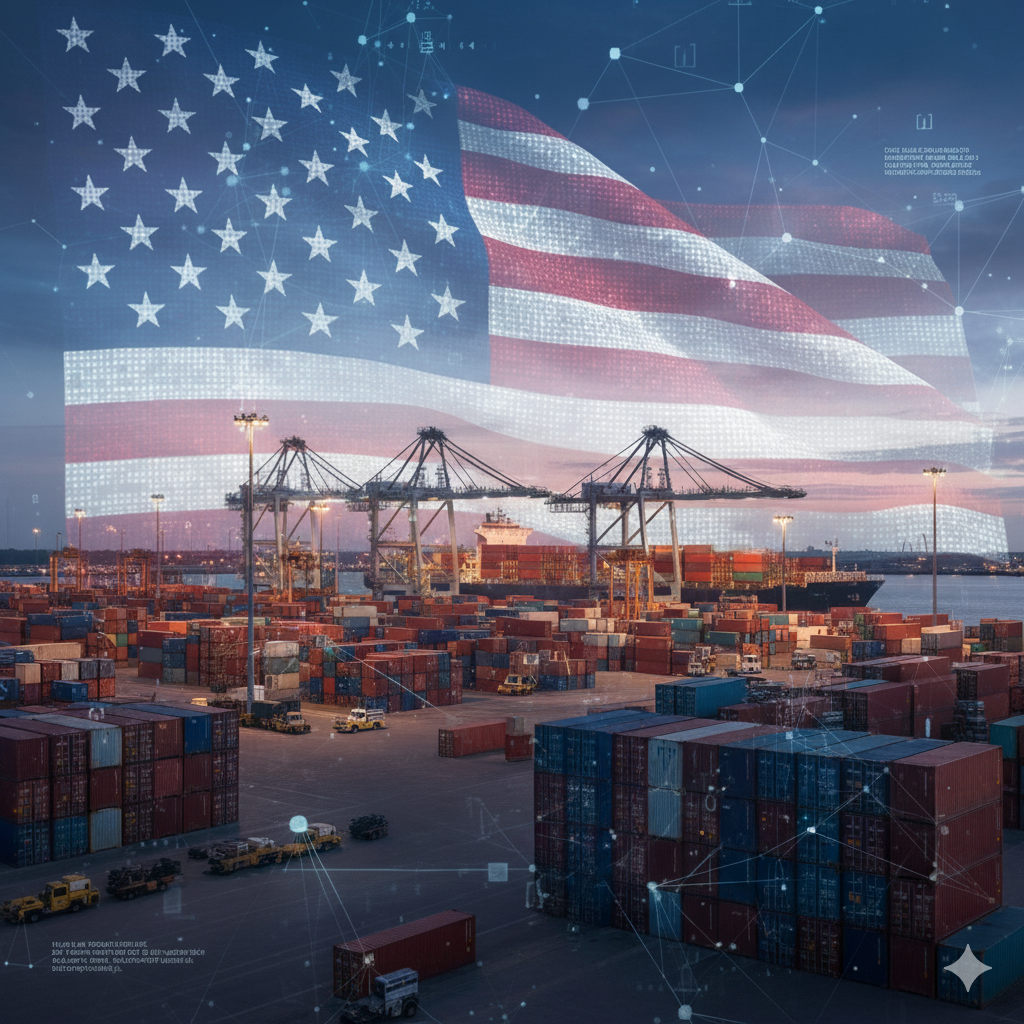📦 The Impact of New U.S. Import Regulations in 2025
How Trump’s trade policies, customs modernization, and ethical compliance are reshaping logistics and talent needs
1. A New Era for Global Trade
The administration of Donald Trump has implemented significant changes in U.S. trade policies in 2025. On April 2nd, the president signed Executive Order 14257, known as the “Liberation Day Tariffs,” imposing a 10% tariff on almost all imports, with additional country-specific fees effective April 9th. This measure aims to reduce the trade deficit and protect domestic industries.
Additionally, on February 1st, an extra 10% tariff was imposed on imports from China, as part of efforts to address synthetic opioid supply and money laundering. On March 4th, a 25% tariff on steel and aluminum imports was reinstated, removing previous exemptions. These policies have generated trade tensions, especially with Canada and the European Union, which have responded with similar measures.
2. Modernization of Customs Processes
The U.S. Customs and Border Protection (CBP) continues implementing ACE 2.0, a digital platform that improves traceability and supply chain efficiency. By Q2 2025, all imports are required to be processed through this platform, with full transition by December 2025. This modernization also includes updates to the ACE portal, enhancing performance and accessibility for users.
3. Ethical Compliance and the Uyghur Forced Labor Prevention Act (UFLPA)
The UFLPA establishes a rebuttable presumption that products originating from the Xinjiang region of China are prohibited in the U.S. due to forced labor. Since its implementation, there has been a noticeable decline in direct imports from this region.
In August 2025, the Department of Homeland Security updated its UFLPA enforcement strategy, identifying new priority sectors and expanding the list of prohibited entities.
4. The New Role of Talent in Logistics and Compliance
- Regulatory Compliance: Experts in new trade policies and risk management.
- Technology and Digitalization: Specialists in systems like ACE 2.0 and real-time data integration.
- Supply Chain Management: Professionals able to adapt to new regulations and optimize logistics processes.
5. How Companies Can Prepare
- Audit Current Processes: Identify and fix gaps in documentation and traceability before new standards become mandatory.
- Train Staff: Educate employees on new regulations, digital tools, and ethical compliance practices.
- Adopt Interoperable Technology: Implement systems compatible with ACE 2.0 and other digital standards.
- Collaborate with Trusted Partners: Work with logistics and technology providers who understand regulatory changes and can provide effective solutions.
6. Conclusion: Compliance, Technology, and People
Trump’s 2025 trade policies have transformed the international trade landscape. Companies that integrate advanced technology, comply with ethical regulations, and have specialized talent will be better positioned to thrive in this new environment.

